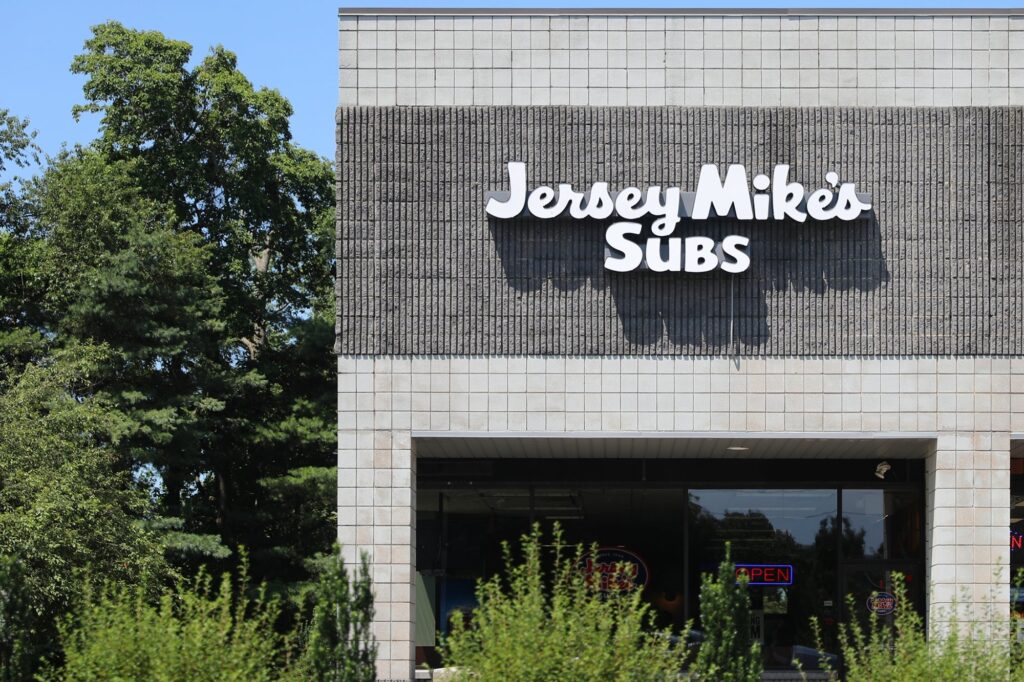Entrepreneur
Private equity has successfully cherry-picked most top franchise brands with enough scale to attract professional investors. Jersey Mike’s and Subway are two high-profile holdouts. Last year, Subway announced it was acquired by Roark Capital for an expected $9.5 billion, but the deal still hasn’t closed and has attracted Federal Trade Commission scrutiny. Rumors are now swirling that Jersey Mike’s is also considering a sale to PE firm Blackstone for a possible $8 billion.
Related: Considering franchise ownership? Get started now to find your personalized list of franchises that match your lifestyle, interests and budget.
Could Jersey Mike’s sell?
Jersey Mike’s is a growth story with strong unit-level economics. There is plenty of untapped growth in the US market and the international plan has yet to come together. Its owner, Peter Cancro, remains heavily involved in the business and has built an admirable customer following and entrepreneurial culture. Whereas Subway is being sold by the estates of the shareholders, Cancro is making the very personal decision about whether to bring in a partner. We can probably credit the sale of Jimmy John’s to Roark in 2019 for getting Cancro’s mental gears turning about PE valuations. Jersey Mike’s is the second largest sub-style sandwich brand. According to Technomic, its sales have tripled since 2019 reaching $3.3 billion in 2023. Cancro still has ambitious growth goals for Jersey Mike’s. Will a big PE firm such as Blackstone get to participate in that next growth wave?
Cancro’s ambivalence about a PE transaction is apparent via his press interviews. He’s avoided PE for years. The culture he’s built is personally very important to him. And Jersey Mike’s doesn’t need PE investment to grow. Great cash flow has already supported $980 million in whole business securitization. According to Jersey Mike’s 2024 Franchise Disclosure Document, distributions of $215 million (in 2023), $173 million (in 2022), and $143 million (in 2021) were paid in just the last three years. Cash flow could instead be used to fund acquisitions.
Related: Find Out Which Brands Have Ranked on the Franchise 500 for Longest, Earning a Spot In our New ‘Hall of Fame’
Jersey Mike’s: The culture question
Is it worth Cancro giving up majority control now? An $8 billion valuation is certainly tempting. Today many new franchises are launched to quickly “flip” the business to private equity. Jersey Mike’s is one of the remaining large-scale, as-yet-unaffiliated brands built during a time when culture came first. That Cancro appears to be seriously contemplating a PE transaction is therefore more of a watershed franchising moment than Subway’s estate sale to Roark. When PE takes majority control, the culture changes. Sometimes that change is good for franchisees, employees, vendors, and customers, and sometimes not. Culture isn’t much discussed in the Subway acquisition. But the culture question looms large over Cancro’s decision about whether to let in a partner.
Rumors have been swirling about Jersey Mike’s potentially making brand acquisitions to give franchisees more expansion options. Cancro has the entrepreneurial drive and proven ability to grow iconic brands. My gut tells me that if Cancro brings in a PE partner now, the story and intention will be about more — such as building a platform — rather than just a big equity sale.
It is heartening to see a founder wrestle with this decision. Many smaller brands today rush into the arms of private equity as fast as they can find a buyer. Jersey Mike’s presents an example of admirable entrepreneurial spirit in the face of undeniable change now that PE is so active in franchising.
Related: ‘Ponzi Scheme-Level Stuff’: This CEO Is on a Mission to Grow His Business Ethically While Fighting an Industry Crisis
Subway and Roark
Subway is still a major fix-it project. It has a known global brand and lots of room for growth but, especially in the US, franchisees are fed up with low profitability. Subway’s franchisee association recently hired a well-known attorney to push management on a slew of issues of concern to franchisees. If Roark is having second thoughts about paying billions for this fix-it project, it hasn’t shown — yet.
If Roark follows through, it’s betting on a turnaround. First, it will keep management focused on engaging top franchisees, pushing remodels and improving operations, marketing, and menus to drive same-store sales growth. Next, I anticipate them opening as many international units as possible to offset hundreds — if not thousands — of closures yet to come in the US market. Roark, one of the most prolific users of whole business securitization (debt backed by royalties and rebates), will also immediately put up to $5 billion of debt on the business and partially repay investors via big distributions.
Subway’s management is aggressively pushing the costly remodel issue again with franchisees. The message lands with a predictable thud, especially in the face of massive shareholder wealth about to be created via the PE transaction. Corporate also has plenty of cash (an estimated $725 million annual EBITDA) to help fund improvements, whereas many franchisees operate on razor-thin margins.
While I expect the Subway/Roark transaction to close, I also wouldn’t be surprised if Roark walks away, cuts the price offered, or demands a larger earnout to cement the deal. Roark has more franchising experience than any other PE firm, especially in the restaurant sector. But there’s a fine line between bravery and overconfidence. Roark is protective of its reputation and avoids public disagreements with franchisees.
It will be difficult for Roark to stifle public displays of franchisee discontent and ongoing closures will speak for themselves. Since Roark seldom exits its investments, this could end up an uncomfortably visible quagmire, especially if Roark puts too much debt on the business and new units don’t open fast enough to offset closures.
Read the full article here












